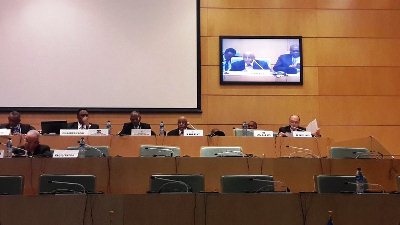South Sudan opposition blames government for failure to reach peace deal
February 20, 2018 (JUBA) – The coalition of nine opposition groups said a peace agreement could have been reached during the first round of the second phase of the revitalization forum if the government did not make impossible demands.

The opposition groups pointed to the attacks on the rebel positions in Equatoria, Bahr el Ghazal and Jonglei regions saying the purpose of the military operations was to portray the SPLM-Io as not interested in peace. Further, they said the government’s refusal to ink the declaration of principles was another indicator of the lack of interest.
“The government delegation also made a host of demands, including rejecting demilitarizing Juba and the major towns, dissolution of the sector in order to allow reconstitution of the army in a way reflective of different faces and ethnicities in the country”, the statement stressed.
On 16 February, the mediators suspended the talks to revitalize the South Sudan peace agreement after 11 days of discussions on the security and constitutional and governance matters without tangible progress.
Nyaba blamed the government delegation for insisting on maintaining the status quo, clearly undermining efforts aimed at advancing in institutional reforms and coming out with the system of governance.
The suspension was followed by a vigorous statement from the Troika countries who are engaged in the process besides the IGAD mediators.
The facilitators pressed the parties to do more on the outstanding security and governance arrangements in order to reach a meaningful agreement. Also, they called on the IGAD and African Union to identify those who violate the cessation of hostilities agreement expressing their readiness to back sanctions at the UN Security Council.
After the suspension of the talks, South Sudanese government officials sought to explain their positions and made several statements in this respect, stressing that the peace agreement is difficult to implement.
In a separate but related view, by Peter Adwok Nyaba former higher education minister and a leading member of SPLM-IO led by Riek Machar expressed doubt on the possibility to hold credible elections after the end of the transitional period by the end of May 2018.
” Even if it was possible to conduct elections during the rainy season, it would be a futile exercise as there are more than four million South Sudanese living in refugee camps in Uganda, Kenya, Ethiopia, Sudan, the Central African Republic and DR Congo. It would not be possible to bring them back to partake in elections in such a short time,” he said.
So in the case that the high-level revitalization forum ends in an agreement, he proposed to establish a new transitional period focusing on reconciliation and repatriation and resettlement of refugees before to hold elections.
(ST)
